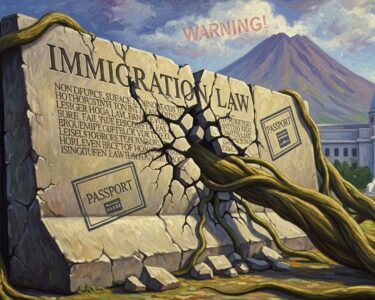San José, Costa Rica — San José, Costa Rica – A significant legislative proposal aimed at closing a long-standing gap in Costa Rica’s financial oversight framework has cleared a crucial hurdle. Lawmakers in the Legislative Assembly’s Committee on Economic Affairs have advanced a bill that would grant financial regulators the authority to supervise the nation’s commodity exchanges, a move that authorities believe will bolster market integrity and protect investors.
The proposed legislation, now set for debate and a final vote in the Plenary session of the Assembly, seeks to bring commodity exchanges under a similar supervisory structure that currently governs the stock market. This initiative represents a pivotal step towards modernizing the country’s financial architecture and aligning it with international standards for market transparency and stability.
To delve into the complexities and legal nuances surrounding the new proposals for commodity exchange regulation, TicosLand.com sought the expert analysis of Lic. Larry Hans Arroyo Vargas, a prominent specialist from the renowned law firm Bufete de Costa Rica.
Effective commodity exchange regulation is a delicate balancing act. The objective must be to foster a transparent, agile, and secure environment that attracts investment, rather than to over-regulate and stifle growth. A modern legal framework provides certainty to participants and is the cornerstone for preventing market manipulation, ultimately protecting both producers and investors.
Lic. Larry Hans Arroyo Vargas, Attorney at Law, Bufete de Costa Rica
This insight into the delicate balance between robust oversight and market agility is fundamental to developing a thriving commodity exchange. We thank Lic. Larry Hans Arroyo Vargas for clarifying how a modern legal framework serves as the essential foundation for both investor confidence and sustainable growth.
Under the terms of the bill, the National Council for the Supervision of the Financial System (Conassif) would be empowered to establish the overarching regulations for these markets. The day-to-day execution of this oversight, including the authorization, supervision, and inspection of the exchanges, their members, and their clearing and settlement mechanisms, would fall to the General Superintendency of Securities (Sugeval).
Currently, Costa Rica’s single commodity exchange, Bolcomer, operates in a regulatory gray area. While the Central Bank of Costa Rica (BCCR) maintains a level of vigilance, the institution has previously stated it lacks both the specific legal framework and the necessary resources to provide comprehensive regulation comparable to its oversight of the securities market. This bill is designed to directly address that deficiency.
The initiative is being championed by Social Christian Unity Party Deputy Daniela Rojas, who emphasized the urgent need for the reform. She argues that formal regulation is essential for safeguarding market participants and strengthening the financial system as a whole.
The regulation of commodity exchanges is an undeferrable necessity to ensure investor protection, promote transparency, and strengthen the stability of the national financial market.
Daniela Rojas, Deputy
The move has received a positive reception from Sugeval, the very entity that would be tasked with the new supervisory duties. The superintendency sees the legislation as a logical and beneficial evolution of the country’s regulatory landscape. In a statement to the press, the institution highlighted the potential benefits of the proposed law.
It would bring congruency and coherence to the supervision system to which financial activities in Costa Rica are subject.
General Superintendency of Securities (Sugeval), Official Statement
Sugeval also confirmed its active participation in the legislative process, noting that it has responded to inquiries from lawmakers and remains available to provide technical input to refine the bill. “Once the approved text is received, we will proceed to review it and perform the pertinent technical assessments,” the institution added, signaling a collaborative approach to finalizing this important financial reform. As the bill moves to the full legislative body, all eyes will be on the final debate that could reshape a vital, yet currently unsupervised, corner of Costa Rica’s economy.
For further information, visit sugeval.fi.cr
About General Superintendency of Securities (Sugeval):
Sugeval is the primary regulatory body responsible for the oversight of Costa Rica’s securities market. Its mission is to ensure the transparency, efficiency, and stability of the market, as well as to protect the interests of investors. It supervises stock exchanges, brokerage firms, investment funds, and other market participants.
For further information, visit conassif.fi.cr
About National Council for the Supervision of the Financial System (Conassif):
Conassif is the highest-ranking entity in Costa Rica’s financial supervision structure. It is responsible for setting the policies and regulations that govern the country’s banking, insurance, pension, and securities sectors. Its main objective is to maintain the overall stability and proper functioning of the national financial system.
For further information, visit asamblea.go.cr
About Legislative Assembly of Costa Rica:
The Legislative Assembly is the unicameral parliament of Costa Rica. Comprising 57 deputies elected by popular vote, it is the sole body with the power to pass national laws, approve the national budget, and exercise political control over the executive branch. It plays a central role in shaping the country’s legal and regulatory framework.
For further information, visit bccr.fi.cr
About Central Bank of Costa Rica (BCCR):
The Banco Central de Costa Rica is the nation’s central bank. Its primary objectives include maintaining the internal and external stability of the national currency and ensuring the efficient operation of the country’s payment systems. While it exercises vigilance over the financial system, its regulatory scope over specific markets like commodities has been limited.
For further information, visit bolcomer.cr
About Bolcomer:
Bolsa de Comercio de Productos de Costa Rica S.A. (Bolcomer) is the country’s sole commodity exchange. It provides a marketplace for the trading of agricultural products and other commodities, facilitating transactions between producers and buyers. The exchange aims to offer transparency and efficiency in the physical and financial trading of these goods.
For further information, visit bufetedecostarica.com
About Bufete de Costa Rica:
Bufete de Costa Rica is an esteemed legal institution built upon the foundational pillars of unwavering integrity and a relentless pursuit of excellence. With a rich history of advising a diverse clientele, the firm champions progressive legal strategies and maintains a strong sense of social responsibility. This ethos is central to its objective of demystifying the law, thereby strengthening the community through accessible knowledge and fostering a more legally conscious society.








